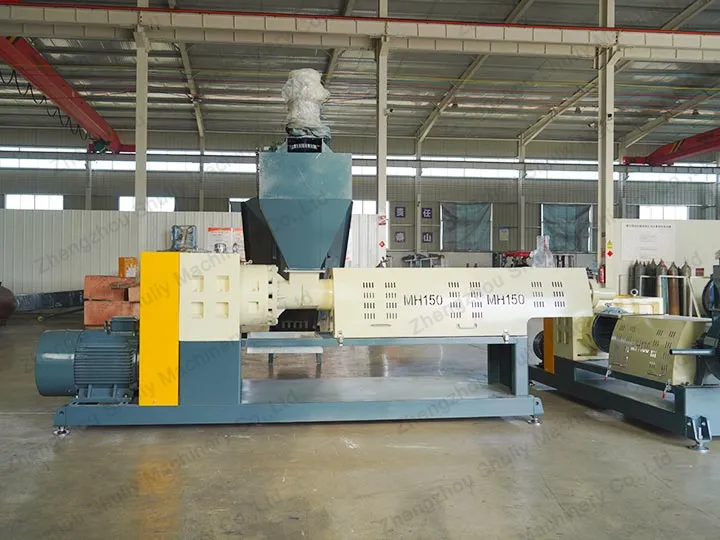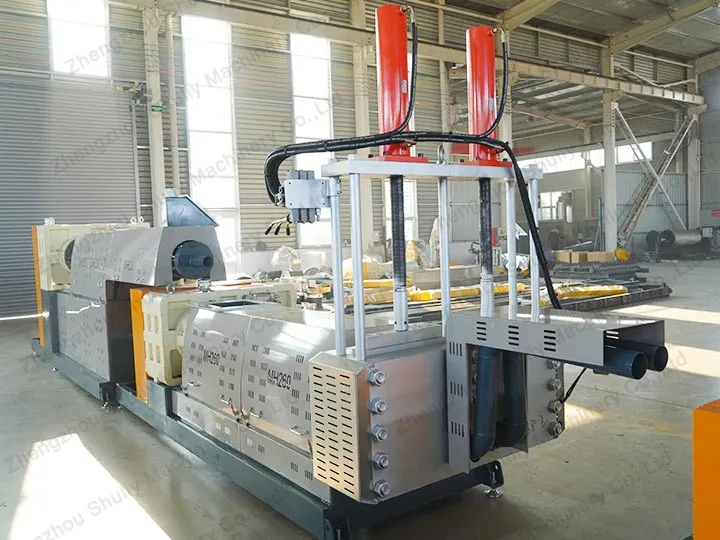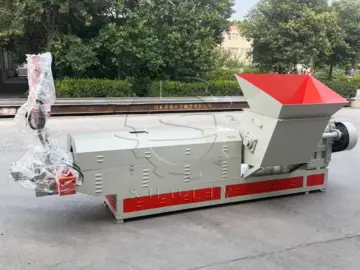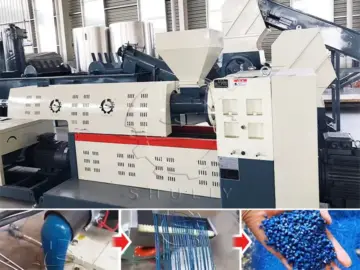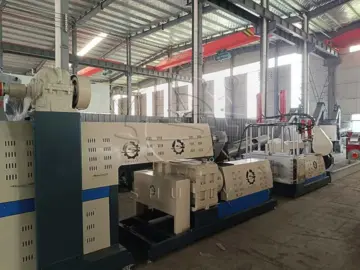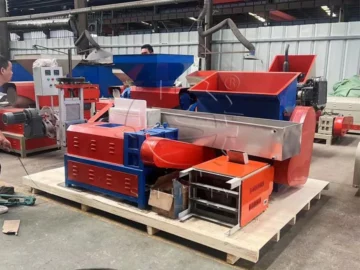Granulator-Kunststoffrecycling ist ein integraler Bestandteil des Kunststoffrecyclingprozesses, der Kunststoffabfälle in wiederverwertbare Kunststoffgranulate umwandelt. Die richtige Schmierung ist jedoch unerlässlich, um den effizienten Betrieb und die langfristige Nutzung von Kunststoffgranulatoren zu gewährleisten. In diesem Artikel stellen wir vor, wie die Schmierarbeiten von Granulator-Kunststoffrecycling richtig durchgeführt werden, um deren reibungslosen Betrieb zu gewährleisten und ihre Lebensdauer zu verlängern.
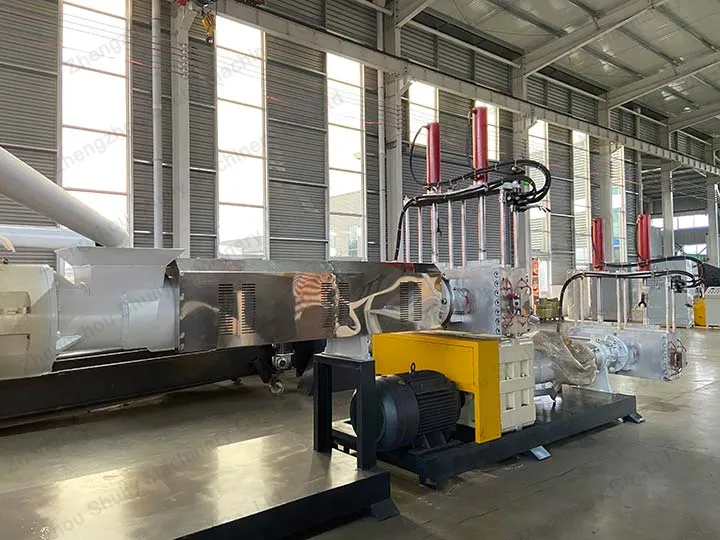
Warum benötigt die Kunststoffrecycling-Granulierung Schmierung?
Die Extruder-Maschine für Kunststoff muss bei der Arbeit eine große Menge an Kunststoff-Rohmaterial verarbeiten, was zu hohen Temperaturen und hoher Reibung führen kann. Wenn die Schmierung nicht rechtzeitig erfolgt, können Maschinenteile aufgrund von Reibung abnutzen, was die Produktivität beeinträchtigt und sogar die Ausrüstung beschädigen kann. Daher ist die Schmierung ein wichtiger Schritt, um den normalen Betrieb der Extruder-Maschine für Kunststoff sicherzustellen.
Die richtige Schmierung wählen
Die Wahl des richtigen Schmiermittels für Ihr Granulator-Kunststoffrecycling ist ein entscheidender Schritt. Zu den gängigen Schmierstoffen gehören Schmiermittel, Fette und Mischungen aus Schmiermitteln und Fetten. Stellen Sie sicher, dass das von Ihnen ausgewählte Schmiermittel eine gute Viskosität und Haftung aufweist, damit es bei hohen Geschwindigkeiten nicht leicht ausgespült wird.
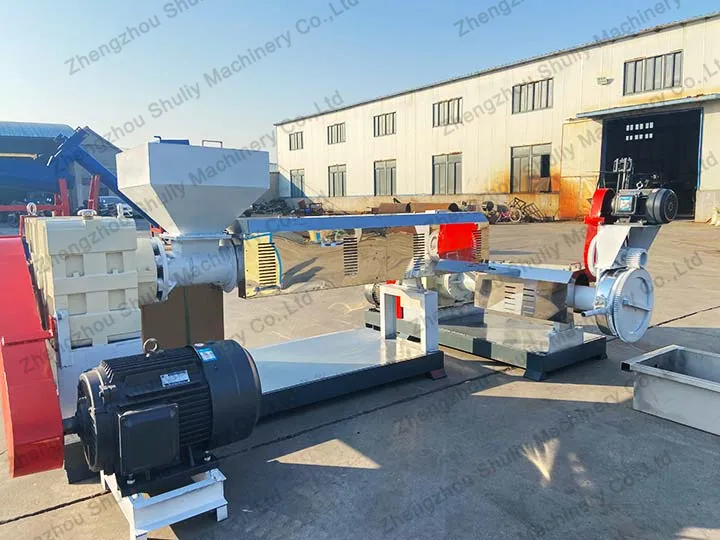
Identifizierung der Schmierstellen
Vor Beginn des Schmierprozesses müssen die Schmierstellen am Granulator für die Kunststoffrecycling klar identifiziert werden. Diese Schmierstellen umfassen in der Regel Lager, Zahnräder, Ketten und andere Komponenten. Stellen Sie sicher, dass jede Schmierstelle rechtzeitig geschmiert wird, um Abnutzung und Ausfall zu verhindern.
Regelmäßige Schmierung
Die Granulatoren für die Kunststoffrecycling erfordern regelmäßige Schmierung, um sicherzustellen, dass sie immer in gutem Betriebszustand sind. Es wird empfohlen, einen Schmierplan aufzustellen, wobei die Schmierintervalle auf dem Produktionsvolumen und der Nutzungshäufigkeit basieren. Eine tägliche Schmierung ist in der Regel eine gute Wahl, aber unter hohen Lasten oder bei hoher Betriebsfrequenz kann eine häufigere Schmierung erforderlich sein.
Auf die Menge der Schmierung achten
Überluben oder unterluben Sie nicht. Zu viel Schmierung kann zu Schmiermittelverschüttungen und Kontamination führen, während zu wenig Schmierung zu erhöhtem Reibungsverschleiß und beschleunigtem Verschleiß von Bauteilen führen kann. Bestimmen Sie die richtige Menge an Schmierung basierend auf den Empfehlungen des Herstellers und den tatsächlichen Bedingungen.
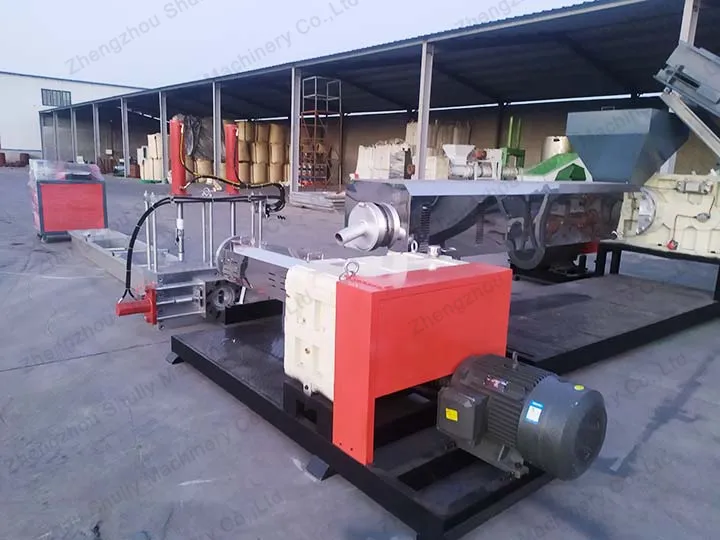
Die richtigen Werkzeuge verwenden
Es ist wichtig, die richtigen Werkzeuge bei der Durchführung von Schmierarbeiten zu verwenden. Das Schmiermittel sollte durch ein spezialisiertes Schmiergerät oder eine Schmierpistole aufgetragen werden, um sicherzustellen, dass das Schmiermittel präzise an die Schmierstelle geliefert werden kann. Dies verhindert Verschwendung von Schmiermittel und verbessert die Schmierwirksamkeit.
Regelmäßige Inspektion und Wartung
Überprüfen Sie regelmäßig die Schmierung der Extruder-Maschine für Kunststoffgranulat, um sicherzustellen, dass das Schmiersystem ordnungsgemäß funktioniert. Ersetzen Sie das Schmiermittel und den Schmierstoff rechtzeitig, um zu verhindern, dass Verunreinigungen in das Schmiersystem gelangen. Wenn außerdem ungewöhnliche Geräusche oder Vibrationen festgestellt werden, stoppen Sie den Granulator-Kunststoffrecycling sofort zur Inspektion und ergreifen Sie geeignete Wartungsmaßnahmen.
